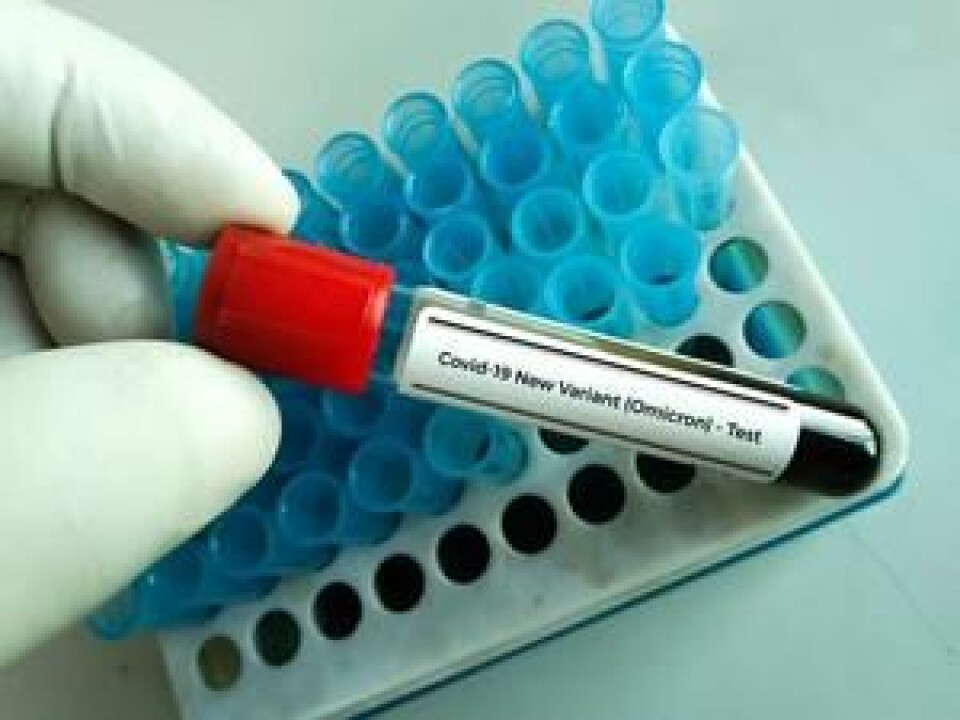-
British and French travellers to the US must soon provide more personal details
Social media account handles, phone numbers and email addresses will need to be declared during application
-
Police across France hunt abandoned cars to free up spaces in urban areas
Vehicles cannot be parked on a public road in the same place for more than seven days
-
Senators examine proposal to guarantee access to cash machines in rural areas of France
Some 18.6% of French communes had access to at least one local ATM in 2024
Covid France: New rules for testing positive and contact cases
The new rules are effective from January 3, 2022

French Prime Minister Jean Castex announced a series of new Covid measures on Monday December 27. He also said that new rules concerning the self-isolation period for people who test positive and contact cases would be unveiled this weekend in the face of the wave of the Omicron variant.
"We are harmonising and simplifying the rules so they will now be identical regardless of the contaminating variant [Delta or Omicron],” Health minister Olivier Véran said in an interview in the JDD today as he announced the changes.
Read more: Covid contact cases in France: earlier rules for both Delta and Omicron
The changes are in response to the need to take into account the extremely rapid evolution of the spread of the Omicron variant in France and should allow for "a benefit-risk balance aimed at ensuring the control of contamination while maintaining socio-economic life,” the health ministry said in a statement.
In addition, the first virological data available shows a faster incubation period for the Omicron variant than for the previous variants, supporting a possible reduction of the isolation period, the ministry said.
The new rules come into effect from tomorrow (January 3).
Changes for people who test positive for Covid
If vaccinated: Isolation rules for people who test positive for Covid-19 - and who are fully vaccinated - are being lightened.
The period of isolation will be seven days whatever the variant and this can be lifted at the end of five days in the event of a negative antigenic or PCR test. The early release only applies if you do not have any symptoms during the 48 hours before the negative test.
What about non vaccinated people? Positive people who do not have any or an incomplete vaccination schedule will have to self-isolate for ten days with possible release after seven days in the event of a negative antigenic or PCR test. The early release only applies if you do not have any symptoms during the 48 hours before the negative test.
Changes for contact cases
Vaccinated people: If you have a complete vaccination schedule you can continue your activities provided you carry out regular tests as stipulated below.
The first test (PCR or antigenic) should be taken on the day you find out you are a contact case (this is Day 0). You must then do a self-test on Day Two and Day Four.
By bringing proof of your first screening at Day 0 (first) test to the pharmacy you will receive all the self-tests you need for your follow-up free of charge, Mr Véran said.
People who are contact cases will have to strictly apply the barrier measures, in particular the wearing of masks indoors and outdoors and should work from home as much as possible, the health ministry said in a statement.
People who are not fully vaccinated:
If you are a contact case and you have not been fully vaccinated or if you have not received your booster in time, you will have to self-isolate for seven days.
You will then have to obtain a negative antigenic or PCR test at the end of this period in order to be able to leave isolation.
Contact cases in schools
For children aged under 12 who are contact cases from their school environment, the national education protocol applies. This means that an antigenic or PCR test must be carried out for all pupils in the class as soon as a case is found in the class, and the pupils must only return to class on presentation of the negative result.
Self-tests should also be carried out on the pupils on Day 2 and Day 4.
Related articles
Rules for travel to and from France
Have you travelled to France under the current Covid restrictions?
























